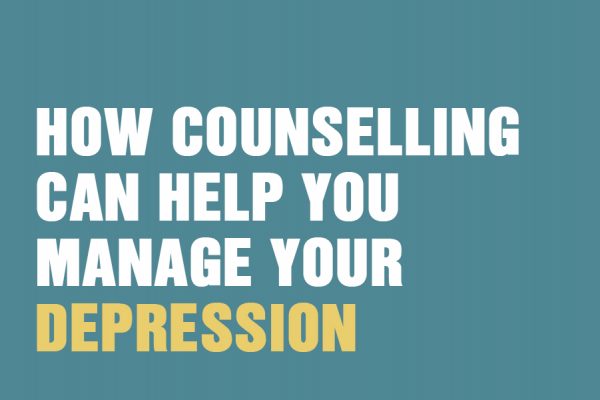OCD is the condition that most people think they might have. but it is quite commonly misunderstood, here’s how to recognise the signs
People often say of themselves or each other that they are “a little bit OCD” because they like to keep their colour-coded pencils in a row, wash their hands thoroughly or check that they have locked the door more than once. But OCD is not about being neat or clean or organised, it is about whether you can control your thoughts and behaviours.
OCD, which stands for Obsessive Compulsive Disorder is one of the most common mental health conditions in the UK. It is a form of anxiety disorder, and as can be seen from the name it has two main parts — obsession and compulsion.
Obsessions are unwelcome thoughts, images or ideas that interrupt your train of thought and recur repeatedly. These obsessions create a lot of anxiety and compulsions are the repetitive activities that you feel you have to do in order to reduce that anxiety. OCD sufferers feel compelled to carry out repetitive behaviours or rituals in order to prevent their obsession coming true.
Most people do have some obsessions, such as a fear of leaving their house unguarded or vulnerable to burglary, and compulsions, such as returning to check that they really have secured the door, at some point in their life, but you cannot have “some OCD”. If you have this condition, your thoughts will make you think that if you don’t do things a certain way you will cause harm and that you need to carry out a repetitive action to stop this from happening. And these thoughts and actions will rule your life. For example, a person who has an obsessive fear that they will be contaminated and get very ill, or pass a terrible disease on to a loved one, may need to perform elaborate washing rituals before they can move on to doing anything else.
Here are some common signs that you have OCD:
Your life is interrupted
The obsessive thoughts and repeated actions to prevent them coming true can take up a lot of time and energy and leave you exhausted. You might also be avoiding things that trigger the thoughts, which can mean taking the long way round your daily tasks, and sometimes not being able to leave the house, or go to work or see your friends.
Distortion occurs
Rather than just think, “if I don’t do this my loved one will be hurt” you may have a clear and disturbing image of that person dead or maimed and can actually come to believe that you have caused them harm or destroyed them.
Your relationships are rocky
Most people with OCD feel that they have to hide their condition from their friends, family and loved ones. They do this to try to protect the relationship but actually, quite often, these doubts and anxieties about relationships can make it feel impossible to continue with them.
Loneliness moves in
Due to feelings of shame about your obsessions and compulsions and the idea that you cannot tell anyone about them you can feel very uncomfortable with others and become quite isolated.
How can you begin to support yourself if you have ocd?
Practice self care
It might sound simplistic but your lifestyle is crucial in helping you to function better. Making sure that you eat healthily, sleep well, look after yourself and have time to relax and just “be” are essential in managing the symptoms of OCD and the anxiety that comes with it.
Regular exercise
Running or football or the gym or your exercise of choice can be a highly effective tool in managing your anxiety. Exercise not only keeps you fit and builds resilience, it can also help you to refocus your mind and banish the obsessive thoughts and compulsions.
Maintain social connection
The thoughts and repetitive behaviours and your desire to hide them from others can become so overwhelming that you are at risk of withdrawing from people. Social isolation can then aggravate your symptoms of OCD. So it is important to stay connected; talking to your friends and family can make your obsessions and compulsions feel less real and threatening.
Stay Mindful
Any stressful situation can trigger OCD and make it feel as if it is getting worse. But rather than avoid those situations, try to tackle the stress with relaxation techniques such as mindfulness, meditation, yoga, deep breathing. This can help lower your overall levels of stress and tension levels and help you to manage the thoughts better if and when a triggering situation arises.
Organise your resistance
Your instincts will tell you to avoid the places and things that trigger your obsessive thoughts, and while that might seem a sensible idea, the more you avoid them, the scarier they become. So you need to train yourself to face these situations and try to resist or delay the urge to act on the compulsion. And, once you have given in to it, try to cut down the time you spend on the ritual. Each time this happens you will be able to increase the time before you give in and decrease the time spent on the behaviours and eventually the anxiety will decrease and you will begin to feel less afraid and more in control.
Change Focus
Again this might sound a bit facile, but when you have the OCD thoughts and urges, divert your attention into something else. You could do this by turning on some music, going for a walk or run, opening a book, watching telly, knitting, but whatever you choose as your diversionary tactic try to give it your complete attention for a full 15 minutes. Then allow yourself to return to the thought and compulsion and reassess, you might well feel that it is less intense when you return to it.
Think ahead
If you are aware when the thoughts and compulsive urges might be coming you can wrest more control over them. So when you are in a potentially triggering situation such as cooking or travelling on public transport try to be very mindful and pay extra attention to turning the gas off or applying the hand sanitiser before you go out. If you can tell yourself “I have done x or y” and create a solid mental picture of having done this you have a better chance of fending off the unbidden thoughts and images. And when the urge to check arises, you will be able to bring this memory and image to mind as a way of resisting the urges.
Challenge yourself
The OCD creates a sort of crack in the record and causes your brain to get stuck and repeat the fearful thoughts, but if you are aware of this you can take this on and stop the “sticking” or constant repetition.
Keep notes
Use your phone or have a small note pad with you to scribble down what you feel in your body and mind when the thoughts and compulsions arise. Try to write through the OCD urges and record exactly what you are thinking even if it means you are writing the exact same thing over and over. This will help you to see in black and white just how repetitive these thoughts are and help you to regain control over them.
Make time for your OCD
Rather than spending all your time and energy trying to avoid or push down your obsessions or compulsions choose a sensible time each day, such as your walk to work, or the first ten minutes back at home after work and in this time give full reign to the thoughts and urges. Do not attempt to stop them until the time is up and then go back to your normal activities. The idea is that you have scheduled the OCD and can spend the rest of the day free of obsessions and compulsions. So when they do arise in the day you can just save them for the allotted worry time.
Find support and assistance
Talk to your GP or seek professional help. Talking therapies, and CBT in particular, are the most common treatment for OCD and can be very helpful in managing your symptoms.
If you have OCD or need to talk about your feelings around obsessive thoughts or compulsions, we have experienced psychotherapists and counsellors who specialise in treating anxiety disorders and will be able to help. Call 020 8673 4545 or email [email protected]







